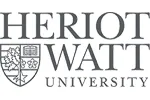

| The award | How you will study | Study duration | Course start | Domestic course fees | International course fees |
|---|---|---|---|---|---|
| Postgraduate Research | Full-time, Part-time | find out | September | 0 | 0 |
Our Structures research theme has substantial expertise in deterministic and probabilistic numerical modelling, physical testing and theoretical work in various structural materials, particularly in structural concrete, structural reliability and life-cycle cost analysis. Research has been funded by both the Government and the private sector.
Our structural concrete researchers have expertise and interests encompassing: non-destructive examination; development of analytical and numerical models of concrete deterioration caused by loads and aggressive environments; effects of deterioration on both strength and serviceability of structures; and structural aspects or repair and strengthening. These serve as a basis for the development of strategies for lifetime management of concrete structures. Our research in this area has been supported by the EU and BT Openreach. There are significant links between this work and the durability work undertaken within the Construction Materials and GeoMechanics Group.
Dr John Cairns has long term involvement in research into bond behaviour and anchorage of conventional and externally adhesive bonded fibre re-inforcement, and in the use of headed bar ends for anchorage in wall/slab connections. This work was funded by Ancon Building Products.
One of our subject specific areas within our structural reliability research is reliability-based assessment of ageing structures based on deterioration modelling, inspection/structural health monitoring and past performance. This research also includes life-cycle cost analysis of deteriorating structures and development of reliability-based maintenance and repair strategies. Another area of reliability assessment is that of marine energy converters, in particular the structural components of tidal stream turbines such as blades and the supporting structure.
An additional area of our research, led by Professor Dimitri Val, is the modelling of effects of natural hazards on infrastructure systems in conditions of climate change. His work is aimed at developing models capable of simulating the performance of infrastructures systems (e.g. water, energy, transport) and taking into account their interdependencies that will assist in formulating strategies for improving infrastructure resilience.
Fees for this course can be found on the tuition fees page.
Scholarships and bursaries
We aim to encourage well-qualified, ambitious students to study with us and we offer a wide variety of scholarships and bursaries to achieve this. Over £6 million worth of opportunities are available in fee and stipend scholarships, and more than 400 students benefit from this support.
View our full range of postgraduate research scholarships.
We welcome applications from suitably qualified candidates. Please visit our How to apply page.
Below are some suggested courses at other providers that you may also be interested in:
If you do not meet the entry requirements for this course then consider one of these postgraduate preparation courses from another institution:
There are 332 other courses listed from Heriot-Watt University. A selection of these are displayed below:
Actuarial Management MSc, Postgraduate Diploma, Postgraduate Certificate
Heriot-Watt University
Find out moreActuarial Science MSc, Postgraduate Diploma, Postgraduate Certificate
Heriot-Watt University
Find out moreActuarial Science and Diploma in Industrial Training BSc (Hons)
Heriot-Watt University
Find out moreSee other universities in Edinburgh
Find out more about studying in the United Kingdom
As an international student you may require a valid visa to study at Heriot-Watt University. Read more about the requirements in our Guide to the United Kingdom International Student Visa Requirements.